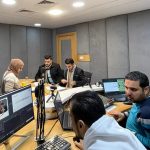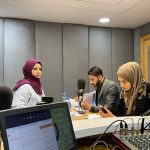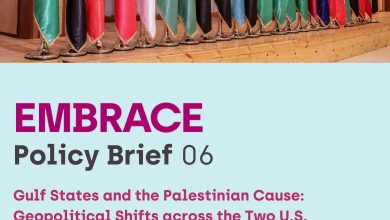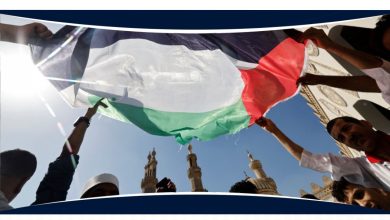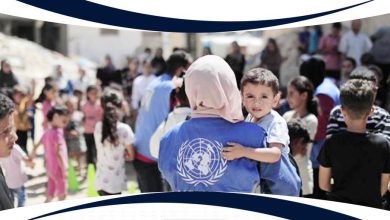Peaceful dialogue and women’s political participation: two radio episodes carried out by Pal-Think within the program “Democracy and Youth”
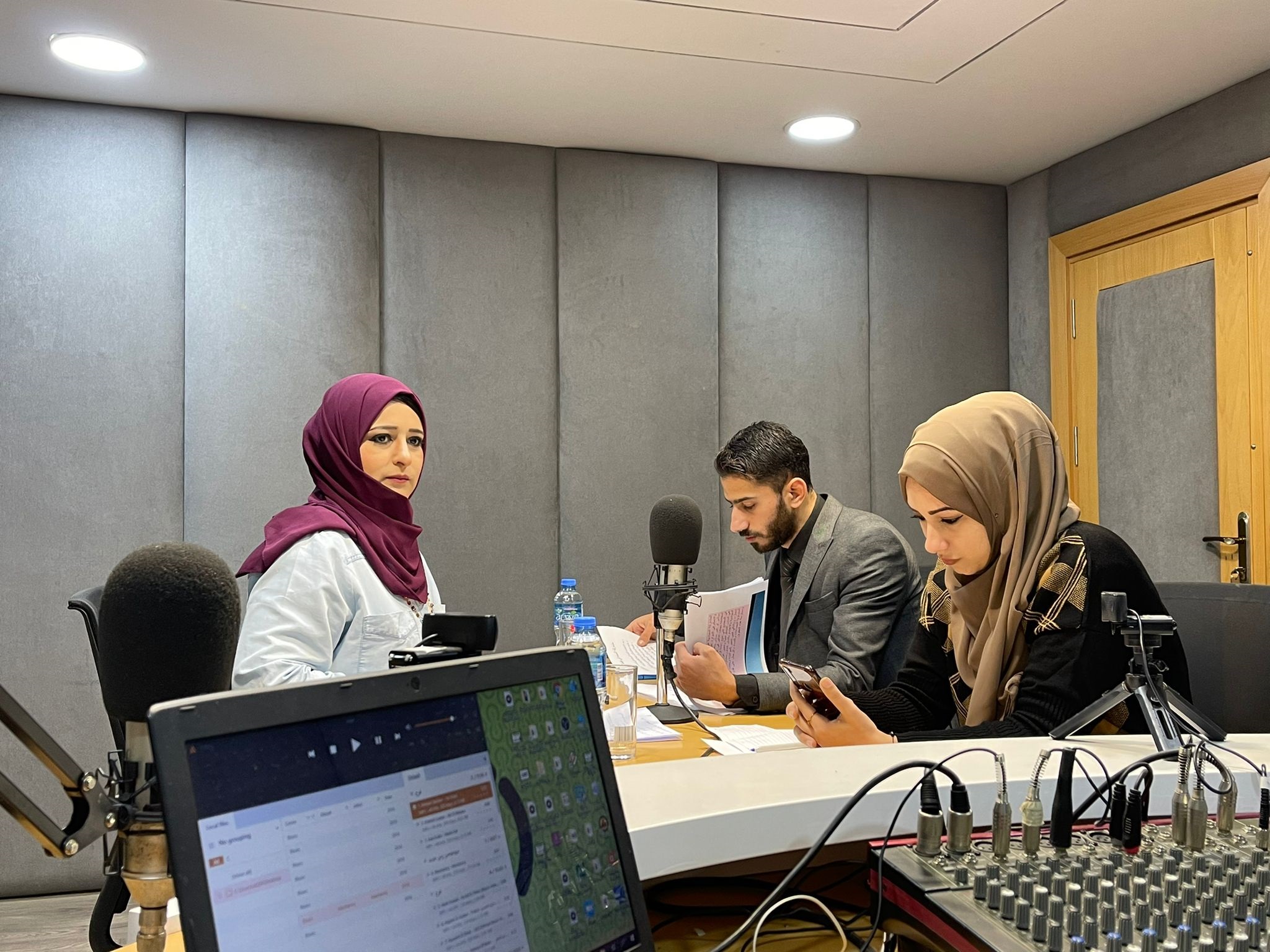
Pal-Think for Strategic Studies carried out the fourth and fifth episodes of the program “Democracy and Youth” broadcast on Zmn FM, a local Radio, on Mondays and Wednesdays as part of the project “Enhancing Civil Society Role to Support Palestinian Elections,” funded by the Government of Canada.
The fourth episode was entitled “Peaceful Dialogue among Palestinian Youth,” with the participation of the young activists: Albraa Al-Zayyan, Abdullah Abu Shamla and a legal researcher, Dr. Muhammad Al-Talbani.
Mr Abdullah began by defining the peaceful dialogue, its importance in our Palestinian society and the obstacles that restrict it as following the ideas of certain puritanical ideologies and the non-acceptance of others.
He stressed that peaceful dialogue was the best way to solve many of the problems in society noting that it was the great responsibility of the family and the school to instill a culture of acceptance and dissent from a young age.
In turn, Mr Albaraa said that fostering the peaceful dialogue by the Palestinian youth is capable of advancing society he also reviewed the impact of its absence on youth.
He highlighted that the central role of instilling and promoting a culture of peaceful dialogue among youth is on civil society institutions.
He continued: “The most important means of promoting peaceful dialogue in society is to inculcate a culture of dialogue in children from a young age, implement awareness-raising workshops for parents to educate them, renounce hate speech and demonstrate its negative effects.”
Dr. Mohammed said that the peaceful dialogue is a reflection of the personal freedom and peaceful coexistence in society.
He also highlighted that there are several reasons contributed to the absence of peaceful dialogue for example: social reasons such as the prevalence of violence in certain customs and traditions, especially at home or in schools or clubs, intellectual reasons such as intellectual closure due to political intolerance caused by the Palestinian division, and legal reasons represented in certain old articles and texts of the law and unsuitable to the present days. Add to that the abuse in using the instruments of dialogue and their adoption of insult, slander and defamation.
The fifth episode was entitled “Women’s Political Participation,” and the guests of the program were: Dr. Elham Alshmali, a political researcher and the youth activists Mr Waseem Lubbad and Ms Hadeel Zaqut.
Ms Hadeel said that the political participation is the practical expression of social contract theory and that political participation and democracy are the same.
She discussed the stages of women’s political participation in the promotion of women’s work and freedom, and then in her cooperative and individual fieldwork of candidates.
She also reviewed the causes of women’s absence from political life, most notably the lack of political awareness among many women and the gender gap in gender roles.
The challenges of women’s participation in decision-making included: the weak embrace and care of women’s institutions and the Palestinian divide.
In turn, Mr Waseem stressed that many men in Palestinian society do not accept the idea of women’s participation in political life despite the urgency of their existence.
He highlighted that women are rarely present in exclusive positions in Palestinian political parties and he explained that women’s participation in Palestinian courts, municipal councils and the forensic judiciary was negligible compared to men.
He confirmed that the presence of women in political life and decision-making means equity for women in society, and politicians would not change the status of women in society unless there was genuine will.
Dr. Elham added that the growth of women’s political awareness in recent years has become remarkable noting that it is important to increase women’s participation in the Legislative Council and the Palestinian political system.
She continued: “The decision to raise the women’s quota is insufficient, and we are short on democracy, and its promotion is the role of civil society.”
She concluded by saying: “Democracy is the only way to support women’s issues.”
The designations employed and the representation of material in these meetings do not imply the expression of any opinion whatsoever on the part of the Government of Canada.”

